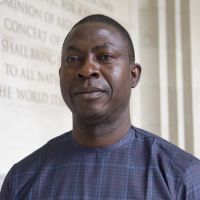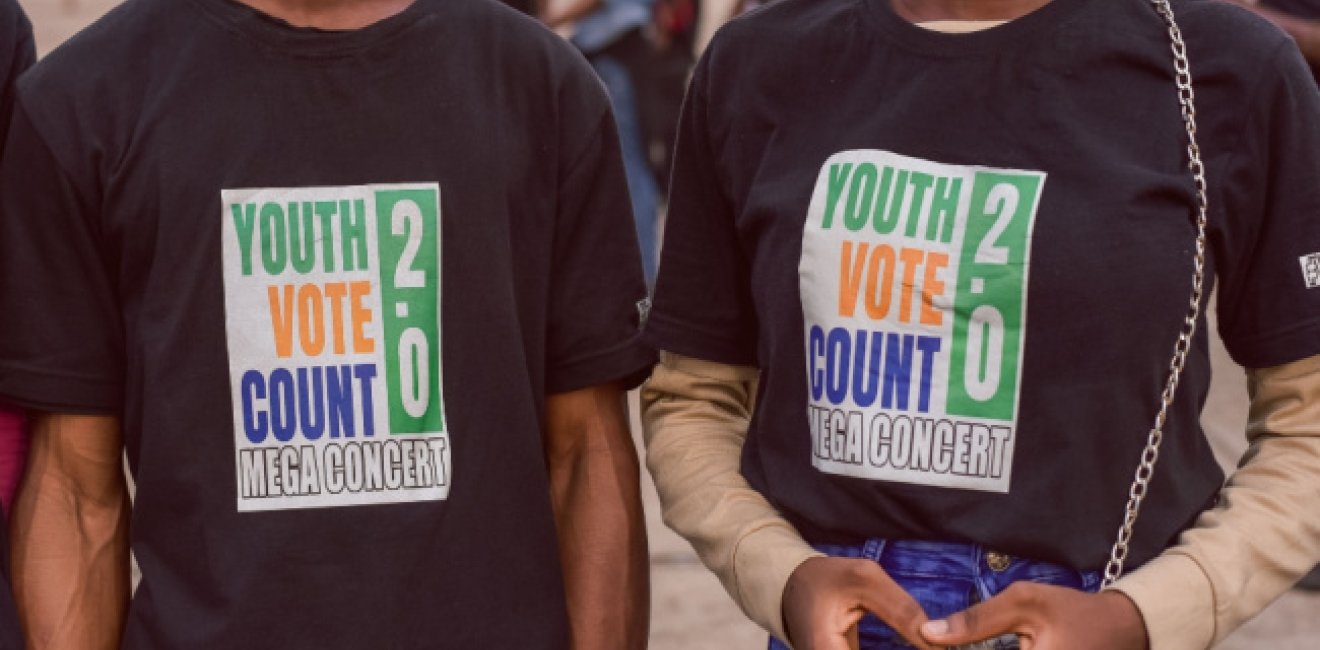
A blog of the Africa Program
Introduction
Elections are among the most effective ways of promoting participation in governance, representation, and uniting diverse groups–where the process is free, fair, and just. Nigeria has conducted many elections and witnessed a plethora of electoral problems, which the roots lay in systemic disjuncture amid efforts by government and election management bodies to transform the electoral processes and safeguard the integrity of election outcomes. While there has been persistent agitation against exclusion, the government has made some efforts to use legislation and eliminate the semblance of disparity in opportunities for elective positions. The essence is to mitigate exclusion that countermands the quest for inclusive electoral process. However, monetized politics introduced and sustained by older politicians remain a disincentive for youth participation. The problem has become a dilemma for the extant politicians that are wealthy and influence the system in their favor and the emerging forces of youth agitations in Nigeria.
Background of the Discourse
After 1999, the bandwagon effects of the military regime in Nigeria reinvented the terms "political godfather" and "money bags". The people in this category have heavy financial weight to assert control over political parties through influencing the conduct of internal party elections and funding political parties and finance candidates in general elections. The processes of nominating these party candidates (godsons) for election displace the ordinary party member. Prior to the "Not Too Young to Run" bill in 2018, the provision for age eligibility in order to run for office did not favor youth. The major constraints also emanate from the socio-economic and political system that prioritizes financial status, party affiliation, and educational qualifications of candidates. Even when youth meet the education requirements, the barrier remains the financial status and space in political parties to express and pursue political aspirations.
The Contending Issues
In Nigeria, voting starts at the age of 18; however, the age of eligibility to run for elective office varies for President (40), Senate and Governor (30), and the Representative and State Assembly (25). Exclusion in elective positions also factors into the structural discomfiture in the economic system and is not entirely a constraint associated with the legal age criterion. The monetization of the electoral processes has exacerbated the crisis of youth exclusion, which favors older, wealthier people or people with political sponsors funding them. The role of godfather and moneybag as well as the absence of internal party democracy leave the control of political parties in the hands of older politicians at the expense of the youth. Sadly, the government does not provide a platform for integration of youths in elective offices.
While the 2010 Electoral Act of Nigeria, as amended in February 2022, drew a limit for campaign funds, it skipped limiting the excesses of political parties in the amounts they charged for nomination forms that shrink political space for youths. Since 2011, the cost of "Expression of Interest" and "Nomination Forms" of political parties, which is the pre-qualifying criterion for an electoral contest, has continued to rise beyond what many of the youths can afford. For the 2023 elections alone, the costs of the All Progressive Congress (APC) Nomination Forms and the Peoples Democratic Party (PDP) Nomination Forms were so exorbitant that it eliminated the dream of the youth to run for offices even with the 50 percent discounts for young persons and women. Wealthy politicians are able to pay this money and transform the political space into a cash and carry enterprise. This activity results in a revolving door for corruption in political offices, with the push and pull on the part of some overambitious youth, to succumb to crime in order to become rich, join the league of moneybags and begin to assert influence and power in the political system.
There is a high level of corruption in the country. This gives rise to a raging strife in the struggle to win elections at all costs. It results in electoral malpractice in the forms of rigging, including ballot snatching and vote buying. Due to the extensive cost of party nomination forms, the youth often turn to odd jobs during elections. Some of them, who are vulnerable to material attractions, resort to ballot snatching, violence, and killing that has transformed Nigerian elections into a battle scenario. The people who perpetrate these nefarious activities receive little compensation, and they are usually abandoned after each election. The consequent frustration has made some youth take to crime, as godfathers and moneybags that lure these young people to orchestrate political violence during every election subsequently sacrifice their interests in the party programs to exacerbate their exclusion.
The Changing Perspectives
Despite these difficulties, youth are beginning to challenge what they face in Nigeria's electoral system; to articulate strategies that circumvent the hurdles and holistically expand the political space for active participation in the electoral process. Their voices have begun to signal their readiness to become leaders of today and no more of tomorrow. The determination has become more visible through interest aggregation by youth, to end their persistent exclusion from running for offices as a result of cost of party nomination forms; furthermore, this is occurring even after the successful passage of the Not Too Young to Run bill, which legally opened windows of opportunity for youth. Attention seems to be directed at pursuing a paradigm shift from the old people to the young ones in leadership positions at all levels in Nigeria. In consonance, Nigerian youth have kicked started what looks like a revolution through the rejection of older people running for presidential offices ahead of 2023 general elections.
At the moment, the ongoing bypass of ethno-religious and party affiliations to mobilize support for young generation politicians is encouraging. Some Nigerian youth have indicated a preference for Peter Obi (presidential candidate of Labour Party), who is considerably younger than the candidates of APC and PDP. There is a sudden realization that the nature of political leadership affects youth; hence, the need to change the narrative by supporting people who have ideas and interests of youth at heart and not those who are driven by party influence. However, this new mindset is punctuated by many questions that only youth affirmative action will provide answers to. First, how will the youth sustain this quest for inclusion in political parties? Second, to what extent will their support for a younger person remain a detribalized struggle and manifest their voting strength by facilitating their victory in the poll?
Nigerian youths seem to have set the 2023 elections as a deadline for ending their exclusion in elective offices and leadership. Therefore, there is a need to make it a realistic vision by ensuring that emerging pressure forces political parties to lower the cost of nomination forms in future elections–thus providing equal opportunities for younger candidates in elected positions. Once the youth translate their numbers to electoral value, it will ensure that the political leadership of the country ceases domination by age.
Dr. Hyginus Banko Okibe holds a Ph.D. Degree in Political Science. He is a Senior Lecturer at Enugu State University of Science and Technology, Department of Political Science and at the Institute for Peace, Conflict and Development Studies department of the university. He was a Southern Voices Network for Peacebuilding (SVNP) Scholar during the summer 2022 (May to August) term at the Woodrow Wilson International Center for Scholars in Washington, D.C.
Photo credit: Young volunteers pose together for a photo during Youth Vote Count Mega concert organized by EU, INEC at Tafawa Balewa square in Lagos, NIGERIA, on June 11, 2022 by Tolu Owoeye/Shutterstock.com
The opinions expressed on this blog are solely those of the authors. They do not reflect the views of the Wilson Center or those of Carnegie Corporation of New York. The Wilson Center's Africa Program provides a safe space for various perspectives to be shared and discussed on critical issues of importance to both Africa and the United States.
Author

Lecturer, Enugu State University of Science and Technology, Department of Political Science

Africa Program
The Africa Program works to address the most critical issues facing Africa and US-Africa relations, build mutually beneficial US-Africa relations, and enhance knowledge and understanding about Africa in the United States. The Program achieves its mission through in-depth research and analyses, public discussion, working groups, and briefings that bring together policymakers, practitioners, and subject matter experts to analyze and offer practical options for tackling key challenges in Africa and in US-Africa relations. Read more

Explore More in Africa Up Close
Browse Africa Up Close
The Innovative Landscape of African Sovereign Wealth Funds



